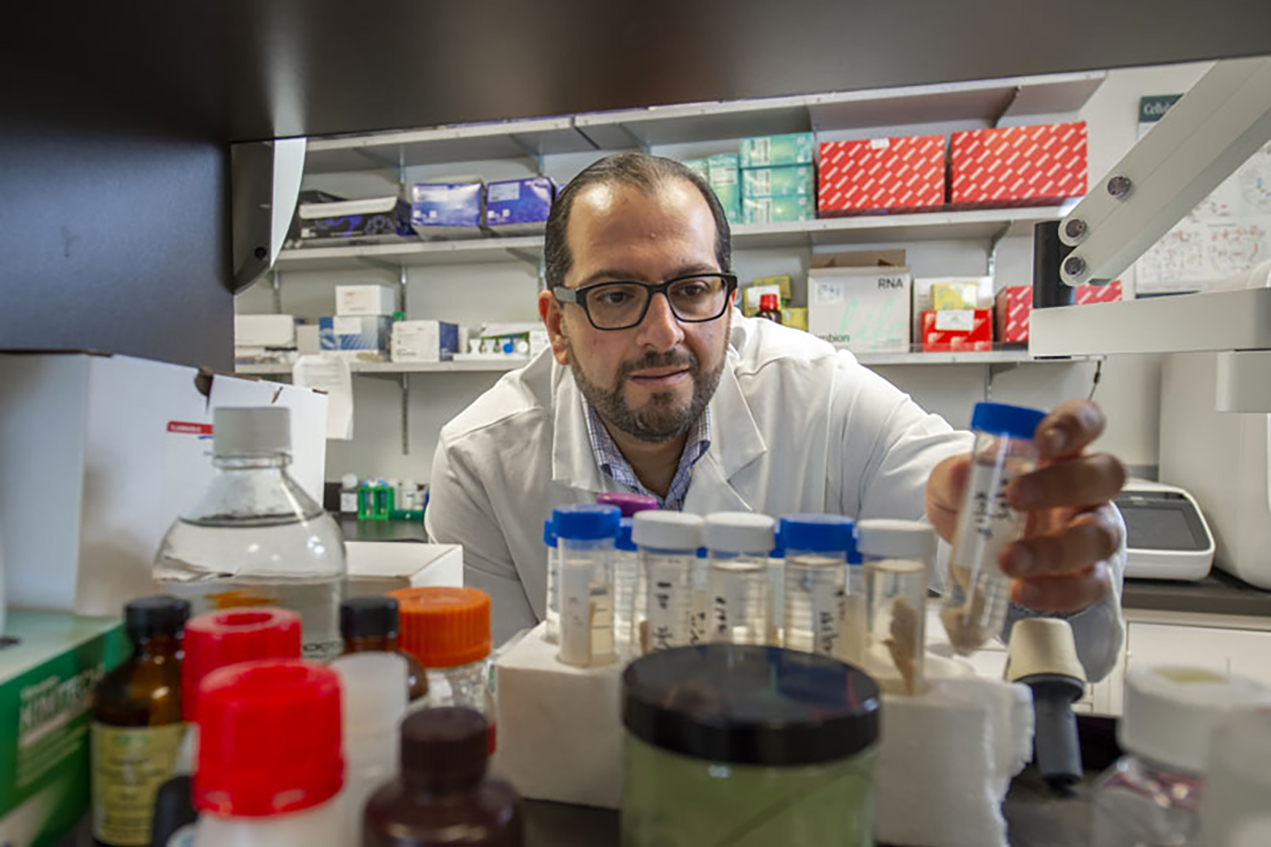If you or someone you love has cancer, Keck Medicine of USC’s Josh Neman, PhD, is in your corner.
The scientist is determined to stop cancerous tumors on the turf he knows best: the lab bench.
An assistant professor of neurological surgery, physiology and neuroscience at the Keck School of Medicine of USC, Neman studies cancerous cells that spread to the brain. He can explain their tendencies in ways that practically anyone could understand. That’s because he knows these rogue cells well. The molecular neuro-oncologist holds a doctorate in neurobiology and did a fellowship in cancer biology, and he focuses on pediatric cancer and metastatic breast cancer.
Ask Neman what motivates him, though, and he doesn’t talk about cells. He talks about people with cancer.
When surgeons remove a tumor from a patient’s brain, they turn tissue over to Neman, a member of the USC Norris Comprehensive Cancer Center, to study it. His lab investigates how tumor cells talk with brain cells and how they can hijack those brain cells for their own benefit.
Patients bring ideas and inspiration
Neman gets ideas for research from conferences and journals, like any other scientist — but he is so curious that he finds inspiration in others’ life experiences, too. When breast cancer patients complained of feeling foggy headed years after completing their chemotherapy, for example, he wondered: Could chemotherapy affect the brain and help cancer to subsequently spread there?
The question spawned research now conducted by his research fellows. They’re focused on the brain’s barriers, which are meant to keep harmful substances in the blood from entering brain tissue. Their findings suggest that chemotherapy might cause lasting damage to those barriers, potentially allowing metastatic cancer cells to enter brain tissue. The National Institutes of Health and the private foundation METAvivor have now funded that work.
Neman brings cancer survivors into his lab and listens to their suggestions. These patients are trained as advocates and review grants for the Susan G. Komen organization and the Department of Defense’s breast cancer research program, which has supported Neman’s work. He also serves on Susan G. Komen’s L.A. County board, promoting metastatic breast cancer research and awareness however he can.
Rallying others to drive research support
He even brought the American Brain Tumor Association (ABTA) 5K Run/Walk to USC’s University Park Campus. The scientist rallied a team of volunteers to walk and run for the national charity. The ABTA funded one of his projects and also supported a medical student who joined his lab to study brain tumors. She is now a Keck Medicine neurosurgeon.
“To have a researcher with that passion is so important,” says ABTA’s CEO, Ralph DeVitto. “The work he’s doing is so challenging, and he’s someone we see as a true ambassador and a true leader.”
— Alicia Di Rado


